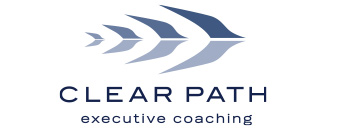
Coordinated global cyberattacks. A 24/7 viral news cycle. The depletion of natural resources that power our economies. Leading in today’s VUCA (volatile, uncertain, complex and ambiguous) world has never been tougher. Challenges that lack obvious solutions abound, the operating environment is in constant flux, and organizations of every size are under constant pressure to innovate quickly and intelligently.
Organizations have adapted to this new climate by shedding layers to become flatter, leaner and more agile, but many leaders I work with still operate under the assumption that being in charge means having all the answers and making most key decisions. It’s an exhausting if not impossible task, not to mention a recipe for high turnover, low morale and questionable strategies. Travis Kalanick at Uber and Oscar Munoz at United Airlines are just the latest cautionary tales of what else can go wrong when CEOs build cultures that focus myopically on results at the expense of inclusive processes and empowered people.
Erica Ariel Fox’s recent LinkedIn post offers some excellent advice on what struggling executives can do to develop the self-awareness and humility that are table stakes for effective leadership. Leaders looking to go from good to great would also do well to focus on their inner game first. As Erica notes, “For anyone with authority, your capacity for extraordinary leadership rises and falls on your ability to lead yourself.”
Sounds noble, you might be thinking, but how does the ability to lead yourself drive extraordinary results for your enterprise – bottom line or otherwise? Because self-aware, emotionally intelligent leaders have the wisdom to understand that their job is to cultivate the conditions that foster the deep collaboration required to tackle complex problems and drive ongoing innovation, rather than come up with a fully-formed vision and playbook themselves. Leaders with a facilitative mindset enable their colleagues to work together in a way that not only amplifies individual contributions, but also generates optimal outcomes. By giving equal weight to results, processes and relationships, they create psychologically safe environments that promote collective creativity and decision-making that’s informed by a wide variety of perspectives and opinions.
Pixar co-founder and president Ed Catmull, an extraordinary leader who has built an extraordinary company by any yardstick, exemplifies this leadership style. He said, “I believe the best managers acknowledge and make room for what they do not know—not just because humility is a virtue but because until one adopts that mindset, the most striking breakthroughs cannot occur. I believe that managers must loosen the controls, not tighten them. They must accept risk; they must trust the people they work with and strive to clear the path for them; and always, they must pay attention to and engage with anything that creates fear. Moreover, successful leaders embrace the reality that their models may be wrong or incomplete. Only when we admit what we don’t know can we ever hope to learn it.”
There’s some great research out there on this topic by noted scholars, including Linda Hill at Harvard Business School (you can watch her TED talk or read her fantastic book, Collective Genius) and Scott Page, an economist whose work on the benefits of diversity in complex systems is backed by a mathematical model). This interesting HBR article, about how we learn more when we learn together, cites the facilitative approach employed by the leadership team of Hamilton as an essential ingredient in the musical’s remarkable success.
To me, one of the many appealing aspects of facilitative leadership is that you don’t have to be a CEO, or even a manager, to practice it and unleash its benefits. Regardless of your seniority, status or functional role, there’s no shortage of opportunities to build and flex your facilitation skills – from project meetings at work to family dinner table conversations at home to book club discussions with friends. If you’re looking to enhance your ability to influence without authority (and who isn’t?), facilitation is a powerful capability to cultivate.
Here’s a checklist of facilitative leadership attributes to keep in mind as you work on your own development:
- Lead from the side rather than the front
- Ask questions and solicit suggestions rather than give orders
- Consider input from multiple sources and perspectives before making decisions
- Treat others as colleagues rather than subordinates
- Encourage constructive dissent
- Be candid about limitations, blind spots and unknowns
- Care both about results and how they are achieved
- Be comfortable with failure
Now if only we could get this to catch on at the White House . . . !









